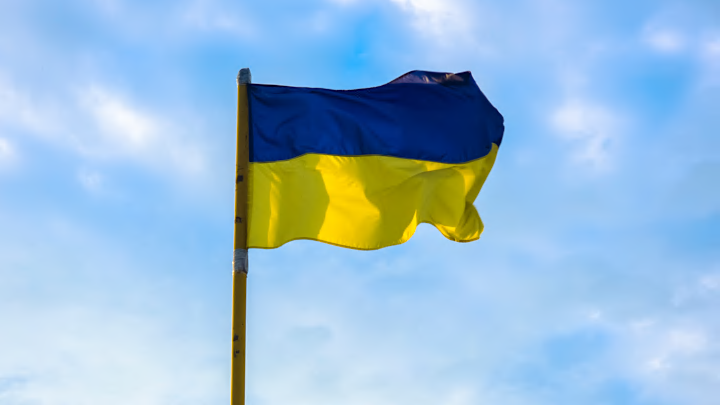Until the early 1990s, Ukraine was almost always referred to as the Ukraine. Then people started dropping the definite article, and now you almost never see it. Why? Because that one small word packs a major political punch.
The the has stirred up a lot of strong resentment in Ukraine. The feeling is that the definite article’s heavy use during the era of the Soviet Union by Russians and Westerners alike belittled Ukrainians—intentionally or not—and demoted Ukraine from a country unto itself to a mere Soviet holding, a border region of the USSR. “Whenever {Ukrainians} hear ‘the Ukraine,’ they fume. It kind of denies their independence, denies their sovereignty,” William Taylor, a former U.S. ambassador to Ukraine, told TIME.
Place names within Ukraine also changed spelling. The English spelling for its capital, Kyiv, was “Kiev” when it was under Soviet control; in recent decades, it has become standard to refer to the city with the Ukrainian spelling that’s used today.
How Ukraine Got Its Name
Most historians and linguists agree that the name Ukraine comes from the Slavic ukraina, meaning “borderlands.” Since many countries whose names derive from a geographical feature or factor have a definite article—“the Philippines” referring to the Philippine islands, “the Netherlands” meaning “the lowlands”—the Ukraine makes sense in terms of “the borderlands.”
There’s a little bit of uncertainty about the etymology of Ukraine, though. A few modern Ukrainian historians trace it to the same root word, but with a different meaning, variously “homeland,” “country,” “land,” “separated piece of land” or “separated part of the tribe,” depending on which historian you’re asking and which sources they’re looking at. The “borderlands” etymology appears to have the most historical support, but if that meaning doesn’t hold up, then the logic for the definite article likewise falls apart.
Since Ukraine declared independence from the Soviet Union, use of the article has declined steadily, in part because of the Ukrainian government expressing its preference for dropping it. Today, the Ukraine is considered antiquated and insulting, and using it in well-informed company is a bad idea.
Read More About Ukraine:
A version of this story originally ran in 2013; it has been updated for 2025.
